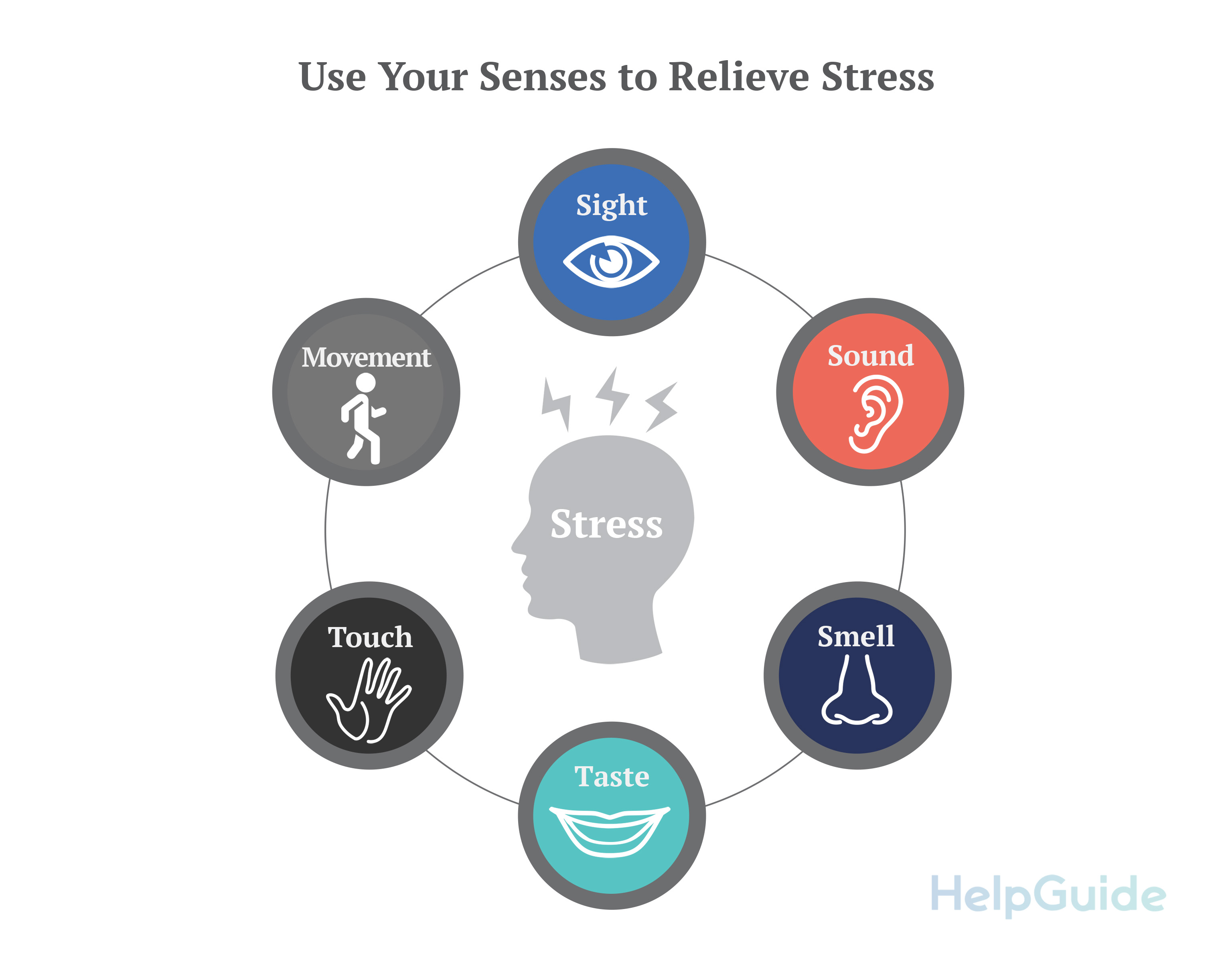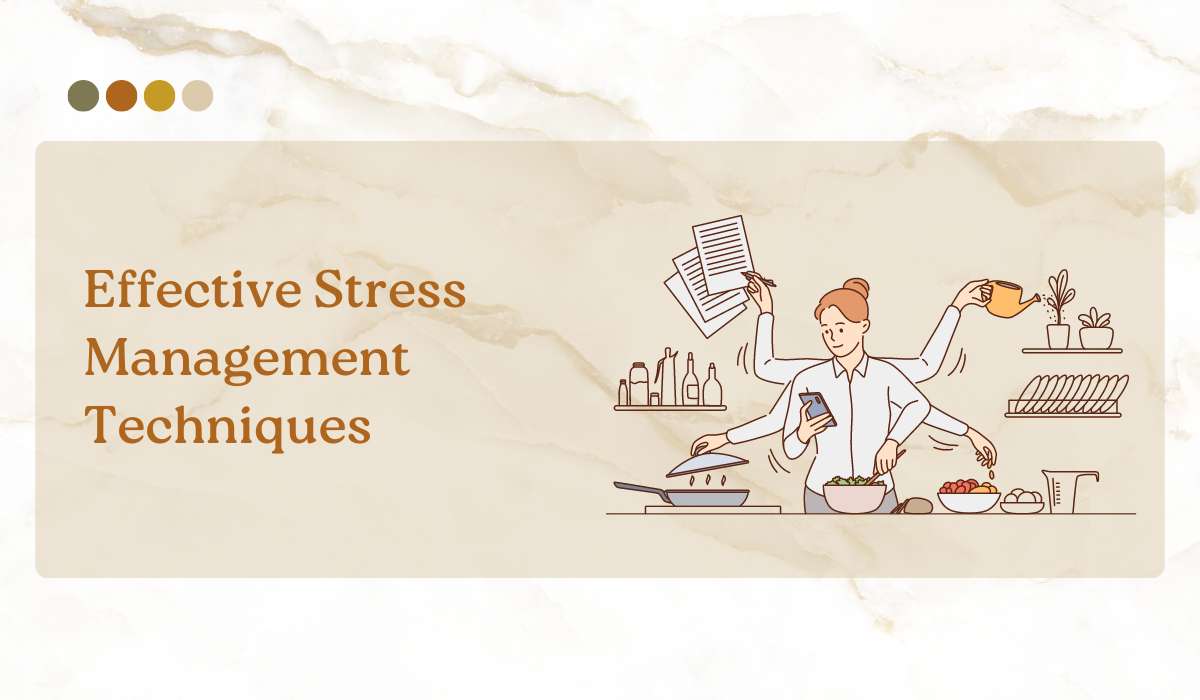Effective Stress Management Techniques is a common part of life, but it’s important to manage it effectively for overall well-being. By understanding stress and its effects, implementing physical and mental stress management techniques, making lifestyle changes, and seeking social and emotional support, individuals can reduce their stress levels and improve their quality of life. Implementing a holistic approach to stress management is key, and by following these simple and effective techniques, individuals can find relief from stress and enjoy a healthier and happier life.
Understanding Stress and Its Effects
Understanding stress and its effects is crucial for effective stress management. Stress can have a significant impact on health, leading to symptoms such as headaches, fatigue, and changes in appetite. By recognizing these signs and understanding how stress affects the body, individuals can take proactive steps to manage their stress levels and improve their overall well-being.
Understanding stress and its impact on health
Stress can have a significant impact on health, both physically and mentally. Chronic stress can lead to high blood pressure, weakened immune system, and increased risk of heart disease. It can also contribute to mental health issues such as anxiety and depression. Understanding these effects is essential for effective stress management.
Common symptoms of stress

Common symptoms of stress include headaches, muscle tension, fatigue, sleep disturbances, irritability, difficulty concentrating, and changes in appetite. It is important to recognize these symptoms as they can indicate the presence of stress and prompt the need for stress management techniques.
Physical Stress Management Techniques
Physical stress management techniques play a crucial role in reducing stress levels. One effective technique is regular exercise, which helps release endorphins and promotes relaxation. Deep breathing exercises, such as diaphragmatic breathing, can also alleviate tension and induce a sense of calm. These techniques can be easily incorporated into daily routines to combat stress.
Exercise and its role in stress reduction

Regular exercise is a powerful tool for reducing stress levels as it helps release endorphins and promotes relaxation. Incorporating exercise into daily routines can effectively combat stress and improve overall well-being.
Deep breathing exercises for relaxation
Deep breathing exercises are a simple and effective technique for relaxation. To practice deep breathing, sit or lie down in a comfortable position and inhale deeply through your nose, allowing your abdomen to rise. Then exhale slowly through your mouth, letting go of any tension or stress. Repeat this process several times to promote a sense of calm and reduce stress levels. Remember to focus on your breath and be present in the moment.
Mental Stress Management Strategies
Mental stress management strategies include mindfulness and meditation practices, which can help reduce anxiety and promote relaxation. By engaging in these practices regularly, individuals can learn to focus their attention on the present moment, cultivate a sense of calm, and develop a greater awareness of their thoughts and emotions. Cognitive-behavioral techniques, such as reframing negative thoughts and practicing positive self-talk, are also effective in managing stress and improving overall mental well-being.
Mindfulness and meditation practices

Mindfulness and meditation practices are effective in reducing mental stress. Engaging in these practices regularly helps individuals focus their attention on the present moment, cultivate calmness, and develop awareness of thoughts and emotions. Practice mindfulness by bringing attention to the sensations of breathing or engaging in guided meditation sessions. Let go of judgments and distractions, allowing yourself to be fully present in the moment.
Cognitive-behavioral techniques for stress relief
Cognitive-behavioral techniques are effective in managing stress by identifying and challenging negative thought patterns. Individuals can practice reframing their thoughts, setting realistic goals, and problem-solving to reduce stress levels. By changing their perspective and focusing on positive coping strategies, individuals can develop healthier ways of managing and responding to stress.
Lifestyle Changes for Stress Reduction
:max_bytes(150000):strip_icc()/stress-relief-strategies-5191480-RegFinal-2bb33f27b9e4402b88c4088177472460.jpg)
Healthy eating habits play a crucial role in stress reduction, as certain foods can help regulate mood and reduce anxiety. Incorporating nutrient-rich foods such as fruits, vegetables, whole grains, and lean proteins into one’s diet can provide the necessary nutrients to support overall well-being and manage stress effectively. Additionally, staying hydrated and limiting caffeine and alcohol intake can also contribute to a more balanced and calm state of mind.
Healthy eating habits and stress management
Incorporating nutrient-rich foods such as fruits, vegetables, whole grains, and lean proteins into one’s diet can provide the necessary nutrients to support overall well-being and manage stress effectively. Additionally, staying hydrated and limiting caffeine and alcohol intake can also contribute to a more balanced and calm state of mind.
Quality sleep and its importance in stress reduction

Quality sleep plays a crucial role in stress reduction as it allows the body and mind to rest, repair, and recharge. Establishing a consistent sleep routine, creating a comfortable sleep environment, and practicing relaxation techniques before bedtime can promote better sleep quality and ultimately help manage stress effectively.
Social and Emotional Support for Managing Stress
Building strong social connections is essential for managing stress as it provides emotional support, understanding, and a sense of belonging. Engaging in activities with friends and loved ones, joining support groups, and seeking professional help when needed can all contribute to effective stress management. Expressing emotions and sharing your feelings with trusted individuals can also help alleviate stress and promote overall well-being.
Building strong social connections to reduce stress
Building strong social connections is essential for managing stress as it provides emotional support, understanding, and a sense of belonging. Engaging in activities with friends and loved ones, joining support groups, and seeking professional help when needed can all contribute to effective stress management. Expressing emotions and sharing your feelings with trusted individuals can also help alleviate stress and promote overall well-being.
Expressing emotions and seeking support

Expressing emotions and seeking support are crucial for managing stress effectively. When feeling overwhelmed, it is important to communicate your feelings openly with trusted individuals. This can be done by talking to friends, family, or even seeking professional help. By sharing your emotions, you can alleviate stress and find the support you need to navigate challenging times.
Conclusion
Implementing a holistic approach to stress management is key to finding balance in life. By incorporating physical, mental, and lifestyle changes, individuals can effectively reduce stress levels. Building strong social connections, expressing emotions, and seeking support play crucial roles in managing stress. Remember to prioritize self-care and make these techniques a part of your daily routine for long-term stress relief.
Implementing a holistic approach to stress management
Implementing a holistic approach to stress management involves addressing physical, mental, and lifestyle factors. To achieve this, individuals can engage in regular exercise, practice deep breathing exercises for relaxation, and incorporate mindfulness and meditation techniques into their daily routine. Making healthy eating choices, prioritizing quality sleep, building strong social connections, and seeking emotional support are also essential in managing stress effectively.
Key takeaways and final thoughtsSimple and Effective Stress Management Techniques
Key takeaways from implementing a holistic approach to stress management include engaging in regular exercise, practicing deep breathing exercises, incorporating mindfulness and meditation techniques, making healthy eating choices, prioritizing quality sleep, building strong social connections, and seeking emotional support. By addressing physical, mental, and lifestyle factors, individuals can effectively manage and reduce stress in their lives.
For More Blogs visit Aerns

